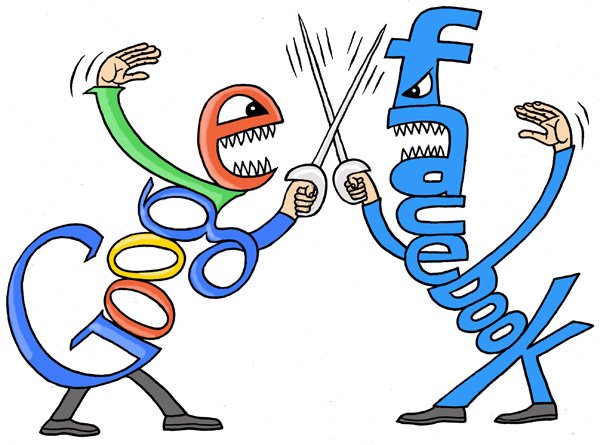In launching Google+ in 2011, Google hoped to challenge Facebook’s social media dominance. Although tech experts praised features of Google+, the upstart failed to attract large numbers of users. People had little reason to join another network when they already had Facebook. Most people remained active on Facebook because everyone else was there.
One Google+ user compared Facebook to a family dinner that you were forced to attend, but secretly hated. Google+ was a cool coffee shop down the street where you could hang out with people you actually had something in common with.
Now, Google has revamped Google+ in an effort to resuscitate the social media platform. Long viewed as having little reason to continue living, Google+ might not die after all. The changes indicate that Google has given up on challenging Facebook’s core strength of networking with existing friends and relatives. The service is repackaged as a place not to connect with friends, but to discover new ones. The approach may be more in line with Google’s traditional strength of matching search queries to data.
While early reviews from tech and social media pundits were generally skeptical about the realignment, Google+ remains a force that social media marketing and PR professionals should watch, even they don’t necessarily chose to remain active on the platform.
Collections and Communities
The new Google+ is simpler, more mobile-friendly and more targeted to core users. Google+ now prominently features Collections and Communities. Communities are places where users can ask questions, make comments or share content on various topics with others who share the same interests. Collections is a new way to group posts by topic.
“Collections allow you to immerse yourself in a specific subject — long boarding, or sub-Saharan entomology, for example. Communities allows you to meet up with like-minded users,” explained Benjie Moss, editor of the WebdesignerDepot blog.
Most commentators seemed underwhelmed by the new face of Google+, viewing it as a warmed over version and an outcome of Google’s reluctance to simply abandon the platform.
“This change does have the capacity to reinvigorate Google [Plus] although Google will have to reintroduce the product to the broader Internet audience,” Greg Sterling, vice president of strategy and insight at the Local Search Association, told News Factor Network. “I doubt this will have any significant business benefits.”
Some are Impressed
A few observers of social media were impressed.
“The new Google Plus isn’t just an update or refinement of the old desktop and mobile application,” said Alexander Howard, senior editor for technology and society at the Huffington Post. “It’s a complete redesign of the site’s front end and back end — that is, the parts of the site that its employees see, and the parts that the public interacts with.”
The company dramatically improved how quickly the Web application loads, a huge improvement for people accessing the site on mobile devices, he said. Another major new feature is the ability to follow a member’s posts about a specific subject without receiving that person’s posts on other topics.
The revamped platform could help Google learn more about consumers, according to Internet Retailer.
The Collections piece, in particular, could help retailers drive consumers to their sites by providing a way for users to group posts and photos by such topics as “Wedding Planning,” news Managing Editor Zak Stambor.
As collections and communities develop within Google+ and attract a significant number of participants, businesses and brands may benefit in participating within the groups that form around their specific interests or product categories.
Bottom Line: A substantial redesign of Google+ indicates that the platform still warrants the attention of digital marketing and PR professionals. Even though many observers are doubtful about its ability to overtake Facebook, the restructuring and Google’s strength in search queries could transform Google+ into a significant social media force.
William J. Comcowich founded and served as CEO of CyberAlert LLC, the predecessor of Glean.info. He is currently serving as Interim CEO and member of the Board of Directors. Glean.info provides customized media monitoring, media measurement and analytics solutions across all types of traditional and social media.





